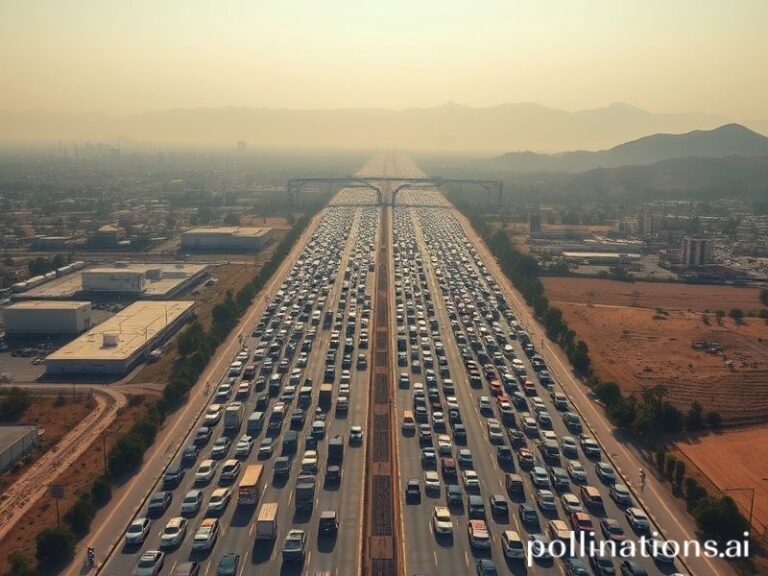The Global Spark: How Humanity’s Favorite Four-Letter Word Keeps Setting the World on Fire
**The Global Spark: How a Four-Letter Word Keeps Humanity’s Lights On (Barely)**
In the grand theater of human civilization, where we’re all just extras pretending we know the plot, “spark” remains our most versatile prop. From the first caveman who discovered fire could both cook mammoth and terrify his mother-in-law to the latest tech bro promising his app will revolutionize revolution itself, we’ve been chasing sparks across the planet like moths with abandonment issues.
Consider the international landscape: While Silicon Valley executives spark “innovation” by reinventing the bus (again), roughly 770 million people worldwide still lack electricity—the original spark delivery system. Nothing quite captures the absurdity of our species like billionaires racing to Mars because Earth got “too complicated” while half the global population would settle for a working light bulb. The International Energy Agency reports that achieving universal electricity access by 2030 would cost about $35 billion annually—roughly what Americans spend annually on gym memberships they’ll abandon by February.
Meanwhile, in the geopolitical tinderbox we affectionately call Earth, sparks fly with depressing regularity. The war in Ukraine has sparked an energy crisis across Europe, proving that when one nation decides to play chess with fossil fuels, everyone else gets checkmated. Germany’s response? Burning more coal, because nothing says “climate emergency” like reverting to 19th-century energy policy. The irony burns cleaner than the coal doesn’t.
In the Middle East, sparks have been flying for so long that regional powers have developed a sophisticated spark-management system—kind of like a fireworks display where everyone’s simultaneously lighting fuses and claiming they invented gunpowder. The Abraham Accords sparked normalization between Israel and several Arab states, proving that even millennium-old conflicts can experience temporary technical difficulties when enough money and mutual enemies are involved.
China’s Belt and Road Initiative has sparked infrastructure development across 140 countries, generously providing developing nations with debt they can’t refuse. It’s sparked something else too: a global game of infrastructure Monopoly where China already owns Boardwalk and Park Place, and everyone else is mortgaging Baltic Avenue to stay in the game.
The climate crisis—our species’ greatest collective achievement in ignoring warning labels—has sparked what experts call “adaptation initiatives,” which is bureaucratic speak for “trying to invent air conditioning for the entire planet.” The Pacific island nation of Tuvalu is literally sparking diplomatic innovation by creating a digital version of itself, presumably so it can continue existing even after it becomes the world’s first entirely submerged country. Nothing says “progress” like needing a backup country in the cloud.
In the technological realm, artificial intelligence has sparked both utopian dreams and dystopian nightmares, though mostly it’s sparked middle managers to ask if ChatGPT can write their quarterly reports while they take another “mental health day.” The UN’s AI for Good summit recently gathered global leaders to discuss regulating technology that nobody fully understands but everyone’s already using to generate passive income through cryptocurrency schemes.
Perhaps most tellingly, “spark” has become marketing’s favorite verb, deployed to describe everything from revolutionary toilet paper to game-changing breakfast cereals. LinkedIn alone hosts approximately 47 million profiles claiming to “spark innovation”—roughly the population of Spain, all apparently spending their days igniting corporate revolutions from their open-plan cubicles.
As we stumble forward into an increasingly flammable future, one thing remains clear: humanity will continue chasing sparks, whether they illuminate our path or burn down what we’ve built. The global village, it seems, is less a cozy community and more a neighborhood where everyone’s playing with matches while arguing about whose fault the fire is. But hey—at least we’re all warmed by the blaze together, even if some are enjoying it from their climate-controlled bunkers while others huddle around the last functioning power outlet.
In the end, perhaps that’s the most international thing about sparks: they don’t discriminate. They’ll light up a billionaire’s yacht or a refugee’s camp stove with equal indifference. The question isn’t whether we’ll keep creating sparks—it’s whether we’ll ever figure out how to use them without setting the whole planet ablaze.







